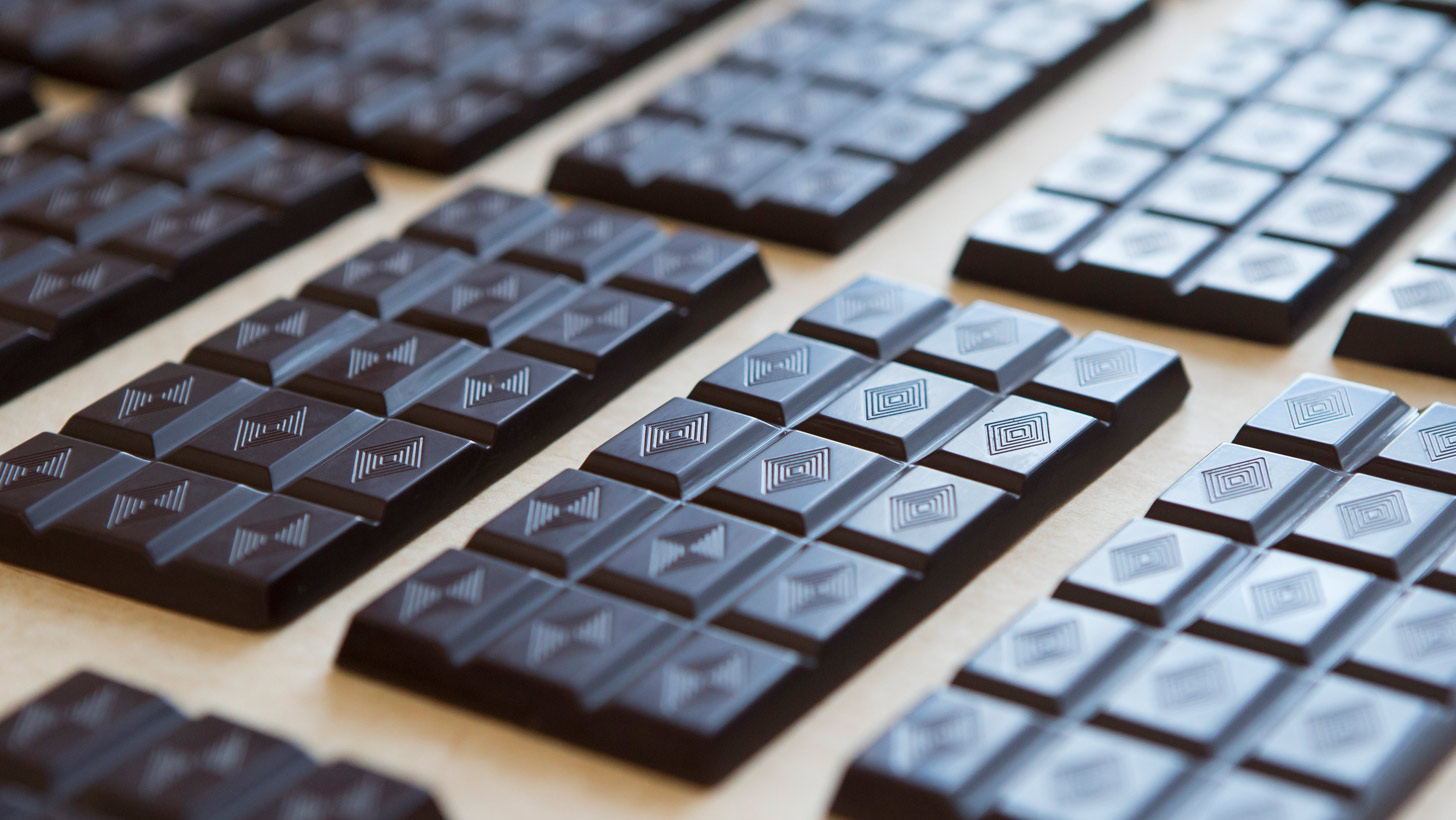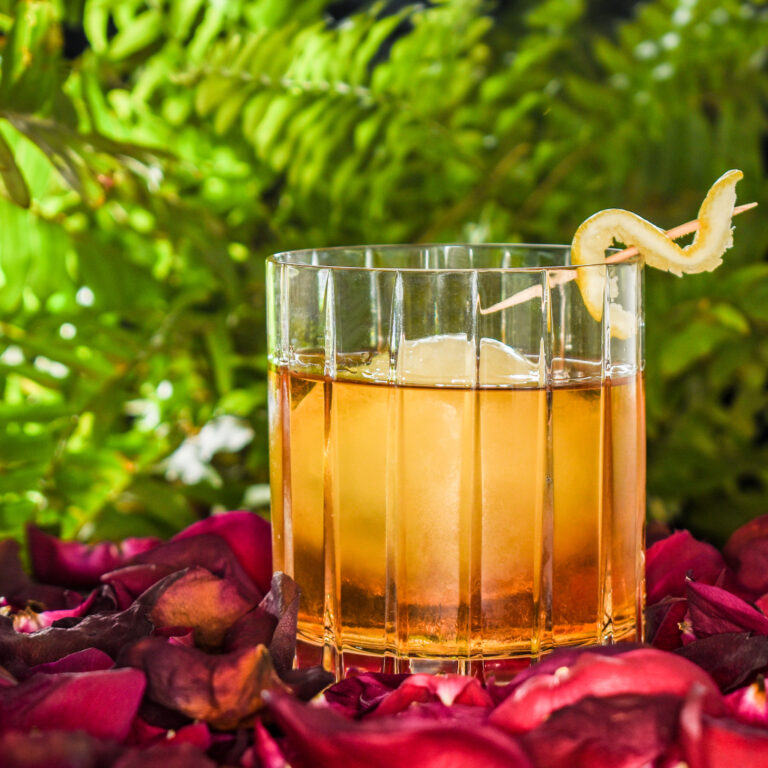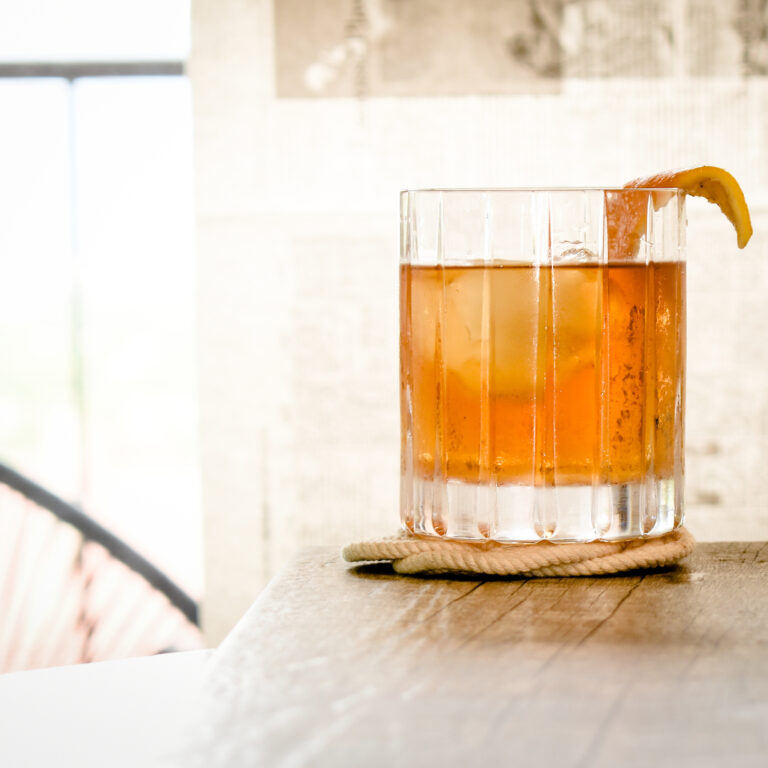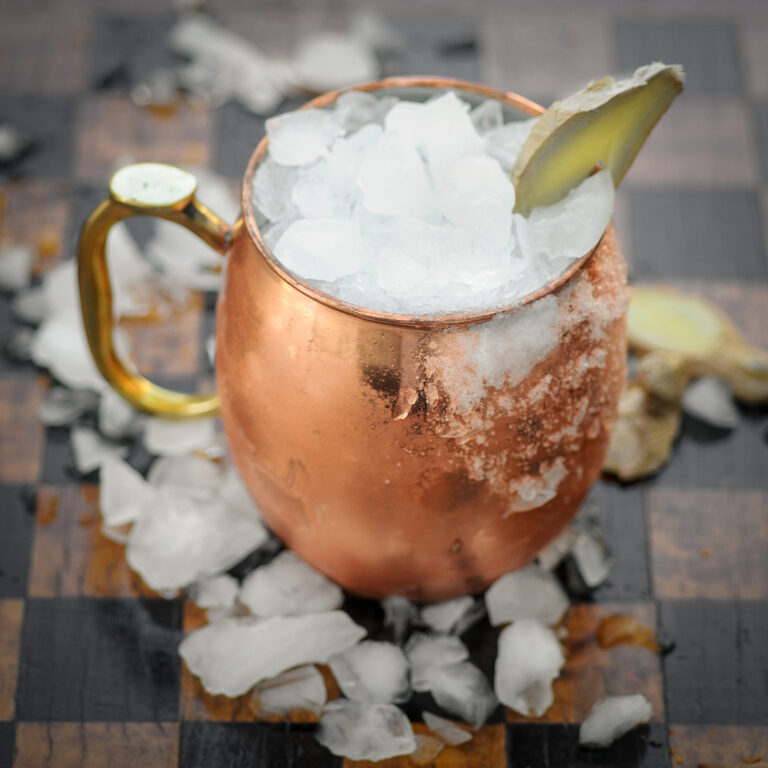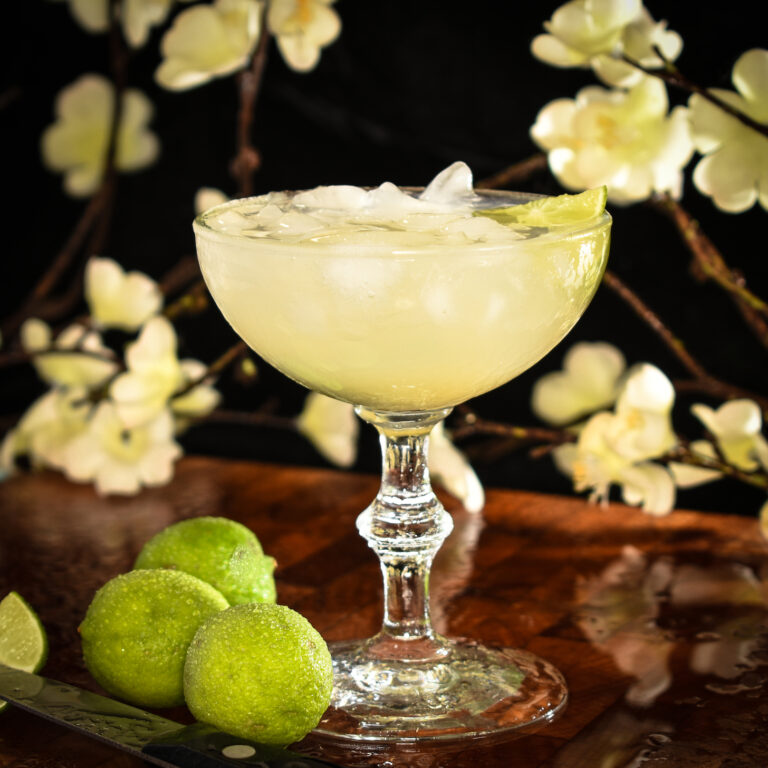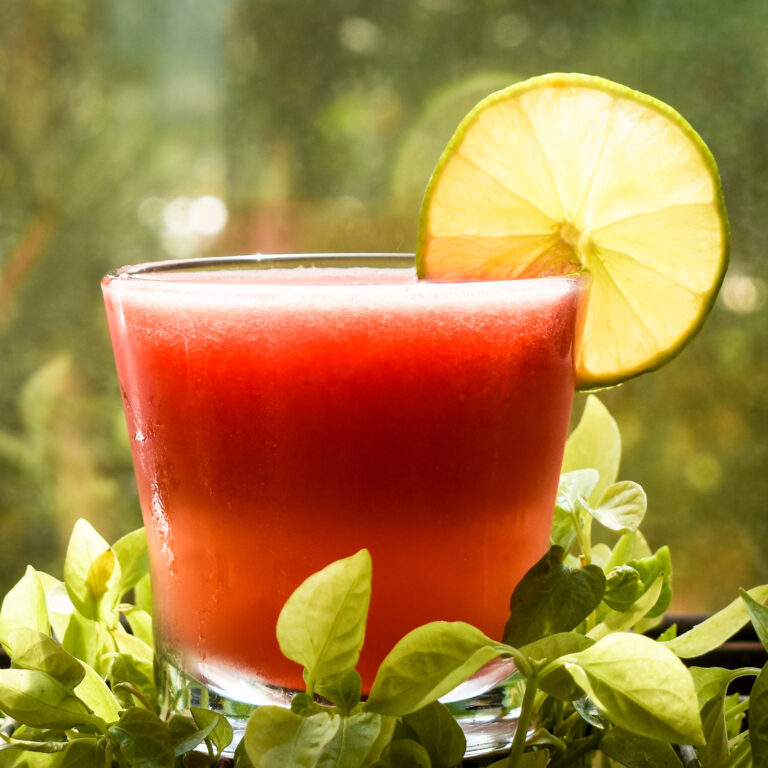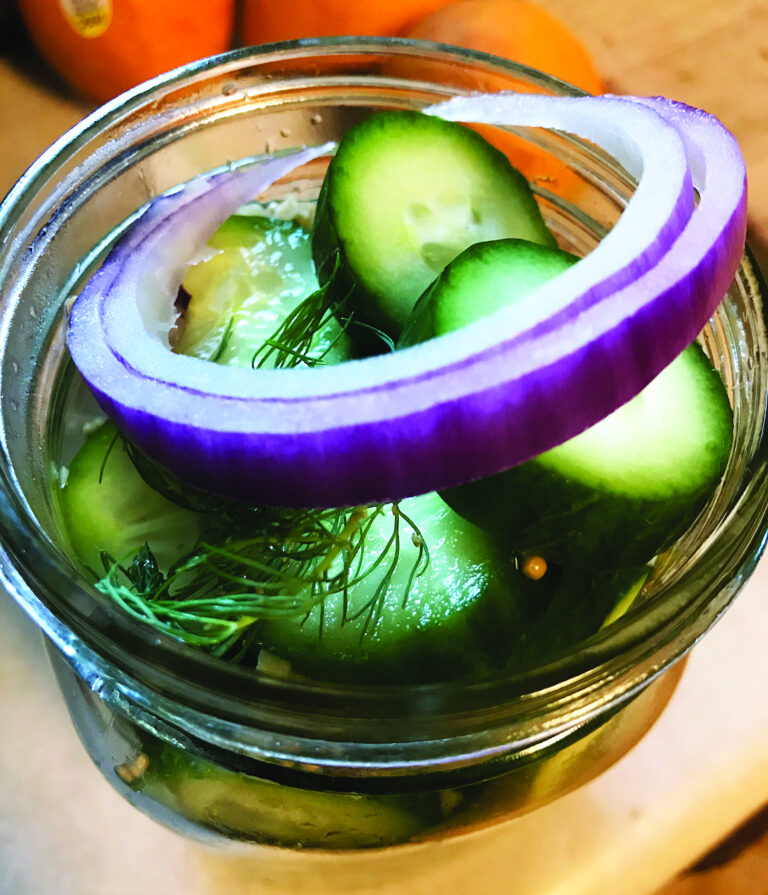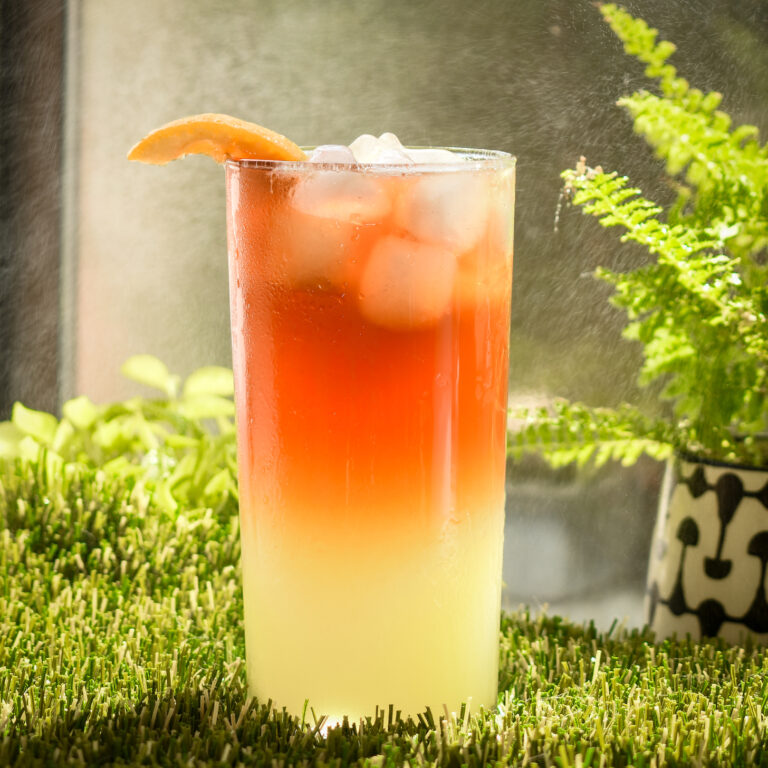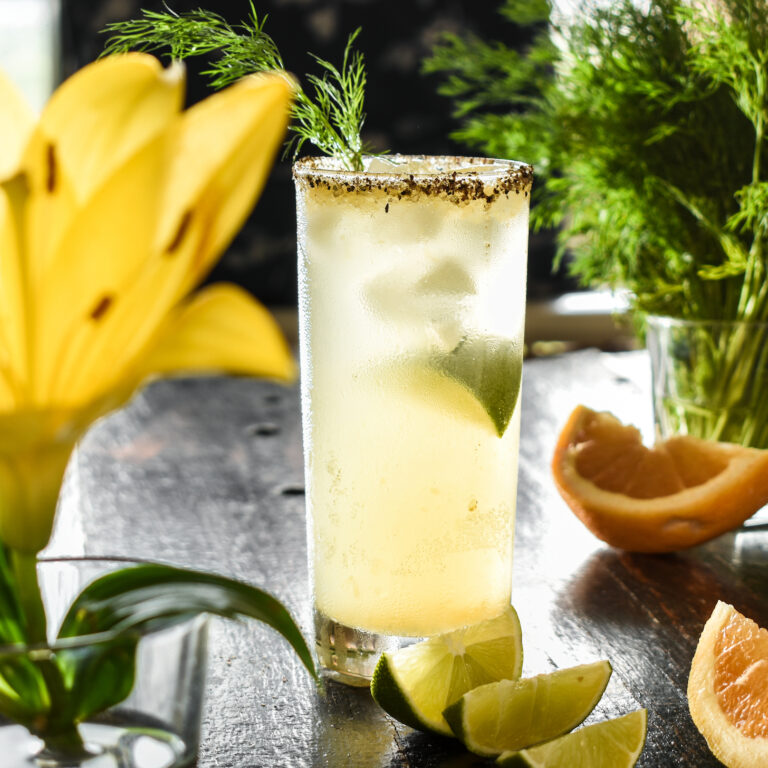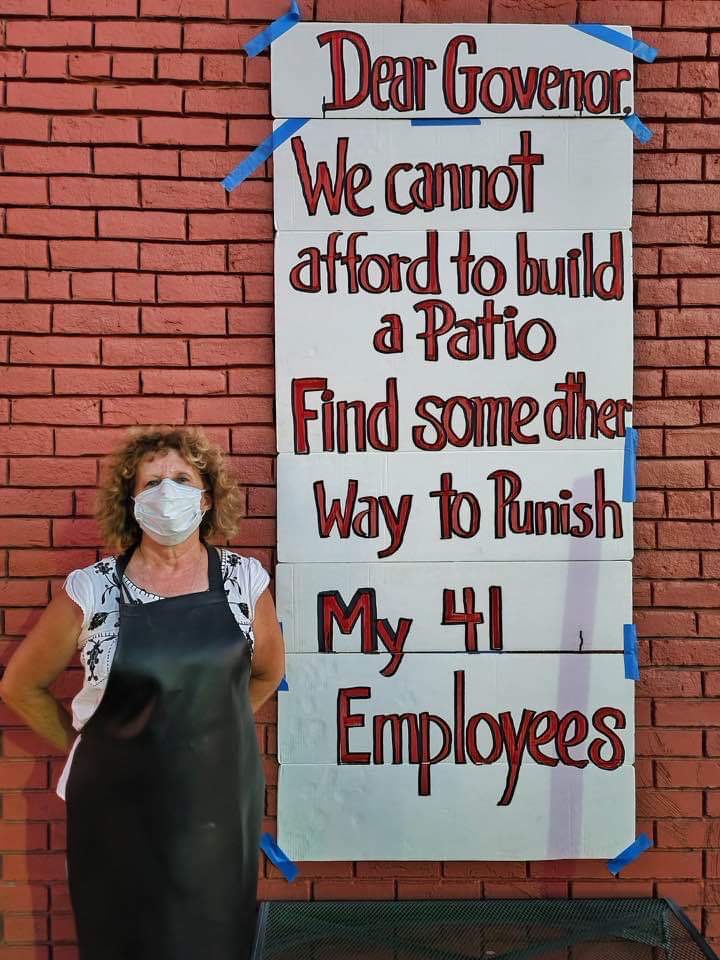You don’t expect to find a craft chocolaterie up in Los Ranchos de Albuquerque. The nearest commercial neighbors are Plant World Nursery and the General Mills plant—along with lots and lots of dusty open lots. The small building that houses Eldora Craft Chocolate even looks like a barn—albeit a very modern and clean barn.But once you walk inside, you realize you’ve just arrived somewhere very special. Albuquerque’s first and only bean-to-bar chocolaterie smells heavenly inside and looks even better. The wallpaper sports an intricate design of cacao trees and the many large windows fill the space with sunlight. From the counter—where you’ll see a glass display filled with foil-wrapped truffles and bars—you can see into the spacious, high-ceilinged kitchen that gleams with stainless steel. There’s a Scandinavian look to the space with its open layout and beautifully simple design.When I visited Eldora last week it was a searingly hot day. I was glad to be somewhere inside and air conditioned, and even more glad that there was going to be chocolate involved. I was met at the front by Steve Prickett, founder of Eldora and their chief chocolate maker. He was sporting a striped apron, black pillbox chef hat and gloves, as were the two other workers tempering chocolate in the kitchen. The uniform gives a sort of nostalgic candy shop appearance to what is otherwise a very boutique operation. Eldora only opened about a month ago—on the 6th of June, to be exact. Although Prickett is a relative newcomer to the chocolate-making world (opening Eldora is his “retirement,” after working at Merrill Lynch for many years), he’s been studying the art and science behind it for years. Though he was always a lover of chocolate, Prickett had never thought of making it himself until four years ago, when he and his wife Andrea went on a tour of a cacao farm in Kaui. As he tells it, “There I learned the piece of the puzzle that I didn’t have before, which was the growing, harvesting and fermentation.” After that trip, Prickett enrolled in the Ecole Chocolat, a Canadian chocolate-making school that offered online courses. He bought some kitchen equipment and began obsessively making chocolate at home—early batches didn’t turn out so great, but he quickly progressed. After about his 100th batch, it occurred to him that this hobby could become a business.Prickett wanted to give me a tour of Eldora, and it was one I could tell he’d done many times before already. “All the [cacao] beans grown in the world are grown on the equator, plus or minus 20 degrees,” he told me as we stopped in front of a floor-to-ceiling world map in a hallway. Prickett has made chocolate with cacao from Ecuador, Guatemala and the Dominican Republic—all countries that are known for being massive cacao producers—but he’s also sourced beans from countries further abroad that make for unique chocolate not often available to Americans. Vietnam, India and Ethiopia all grow cacao, but when was the last time you ate chocolate sourced from any of those places? Probably never.Inside, the kitchen at Eldora is organized and immaculate—I almost wouldn’t believe that people actually make chocolate in there, except that there were, in fact, people making chocolate in there. Prickett took me to a back room where all the freshly imported cacao beans are stored in plastic totes, neatly organized by origin with colored labels. “You’ll notice there’s five different origins back here,” Prickett says. “Ecuador, Dominican Republic, Tanzania, Guatemala and then Venezuela. Now, how did I arrive at those 5 out of the 24 origins I’ve worked with? I have my favorites. And I was looking for some flavor profiles that would kind of be appealing across the spectrum.” Some of these origins produce a more fruity flavor, while others are darker and earthier—a more “chocolatey chocolate,” as Prickett says.From the storage room we move on to a roaster in the kitchen—it’s a coffee roaster like you would see in a café because the process is pretty identical to roasting coffee, and because Eldora is working in such small batches still that they don’t need to roast in large volumes. “We can do about a six pound batch in this,” Prickett says. “As volume picks up, this thing will start roasting all day long.” Roasting chocolate beans is a learning process: You have to figure out what temperature and how long of a roast works the best for each origin. The next step from there is cracking the beans and separating the hulls from the nibs—i.e., the part that actually becomes chocolate. These processes happen in another room that’s dominated by a PVC pipe contraption I’ve never seen before—it looks like something you could make moonshine in. Prickett calls it the “Back to the Future machine.” Once the beans have been cracked in the cracker, they go into this machine, which is conspicuously hooked up to a household vacuum. The vacuum sucks the lighter hulls up into one bucket, while the heavier nibs fall down into a pan on the floor. It’s a pretty genius little homemade process.After this, the cacao nibs go into a concher, which heats and grinds the nibs down into chocolate liquor. Unless you’re making ultra dark chocolate, this is where you would add sugar into the mix. From there, the liquid chocolate goes into molds.Prickett’s two employees are pouring chocolate into molds when we come back into the central kitchen. On the surface of the just-molded chocolate they add lemon zest and lavender—it’s one of their most popular bars, and it’s very pretty. Alongside those was an experimental bar: the 100 percent dark chocolate. No sugar, no milk, no anything except cacao nibs. “If you were to try this, it would taste like bitter coffee,” said Prickett. Not exactly appealing in my book, but I was more than ready to eat some chocolate by then. Thankfully, there was plenty of chocolate to be had. Prickett cooked up a batch of drinking chocolate for me, made from special bars with sugar and spices included—à la traditional Aztec drinking chocolate. He blended the bar with water and let it spin on high for a few minutes to aerate it, making for a light and fluffy drink. Poured over ice, this was delicious—not as heavy as most hot chocolate drinks and not overwhelmingly sweet; more of an unadulterated chocolate experience. I followed this up with one of Eldora’s olive oil blood orange truffles, which was heavenly. One of my favorite flavor combinations, all mixed up with chocolate and butter—there’s not much more I could ask for. Despite their location out on the northern fringe of the city, I suspect that Eldora will draw a crowd of dedicated chocolate lovers—the kind who don’t mind a bit of a trek if it means they can get their hands on quality chocolate made from fair trade, organic beans. It’s worth the drive.
Eldora Craft Chocolate
8114 Edith Blvd. NE
Albuquerque, NM 87113
433-4076
eldorachocolate.com
Hours: Sun-Mon closed, Tue-Fri 11am-6pm, Sat 10am-5pm
